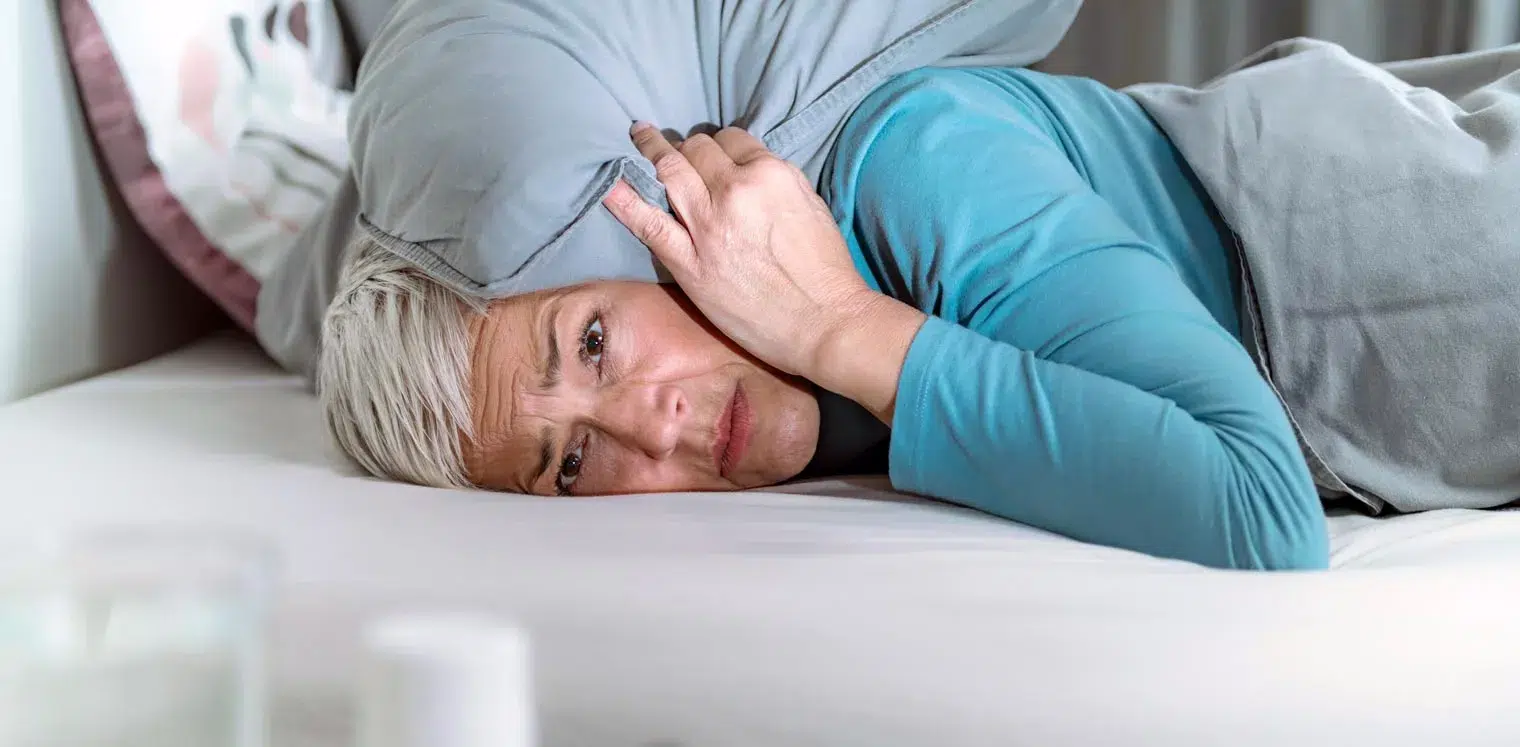Understanding Misophonia and Treatment Options
Table of Contents
While misophonia is not considered a medical condition at this time, it is recognized by the medical community and can have a major impact on a person’s life. If you have misophonia or think that you might and notice that it’s affecting your life negatively, what can you do? Help is out there, and understanding what’s going on is the first step.
Let’s talk about what misophonia is, effective forms of misophonia treatment, and how Emerald Isle Health and Recovery can help!
What Is Misophonia?
Misophonia is a complex syndrome and phenomenon where individuals experience intense emotional reactions to certain sounds. Common misophonia triggers include but aren’t limited to eating sounds, throat clearing, sniffling, lip-smacking, slurping, papers rustling, and loud breathing.
Although there are a lot of sounds that aren’t exactly pleasant to most people, if you have misophonia, hearing your trigger sounds will lead to more severe symptoms. Everyday noises such as crickets chirping, a ticking clock, or swallowing can be unbearable. Some people with misophonia even develop visual triggers that become associated with triggering sounds.
Confidential Mental Health Assessment
Symptoms of misophonia
It’s essential not to brush off misophonia symptoms in yourself or a loved one as something to “just get over,” as there are strategies and treatments that can help. How do you know if the reason you’re annoyed when a family member chews or sniffs is due to misophonia or something else?
Although there are no diagnostic criteria for the condition, there are known symptoms that affect people with misophonia.
Misophonia symptoms can include but aren’t limited to:
- Annoyance, anger, or disgust presents when you hear a trigger sound
- Anxiety or panic presents when you hear a triggering sound
- Lashing out when you hear triggering sounds (e.g., eating sounds)
- Increased blood pressure or heart when that presents when you hear a trigger sound
- Inability to control reactions to some noises or sounds
- Becoming physically aggressive with objects that make certain noises
- Avoidance of trigger sounds
If you find it hard to control your response to certain sounds or experience strong emotions like anger, it could be misophonia.
How Does Misophonia Affect Your Life?
Prior to learning about misophonia, many people feel as though they’re at a loss and wonder what’s going on. Misophonia can be more than unpleasant for the person experiencing it. If you have misophonia, you may feel misunderstood or guilty for the reaction you have to some sounds, especially when the noises are everyday sounds that other people in your life make.
Some people who experience sound sensitivity in this way might start to avoid certain situations. For example, misophonia may lead you to avoid social situations or events as a means to avoid triggering sounds.
A person with misophonia might even find themselves having a reaction to certain sounds that harms interpersonal relationships. This is common among those who experience anger or irritability when faced with triggers.
Is Misophonia The Same As SPD?
Sensory processing disorder (SPD) is not the same as misophonia. The two conditions are similar in the sense that they are recognized by the medical community but aren’t diagnosable disorders. Both conditions also include abnormal reactions to stimuli. Misophonia relates to sound sensitivity only, whereas SPD can lead to adverse responses to any sensory input and can come with other symptoms.
What are the Causes of Affective Disorders?
We don’t know for sure what causes misophonia. Misophonia research shows that people with misophonia experience altered brain activity in the auditory cortex and salience network when hearing certain sounds. It has also been found that people with misophonia experience nervous system responses (e.g., the fight or flight response) when met with their trigger sounds. So, if you have misophonia or think that you might, be assured that what you’re going through is real.
Some experts suggest that certain conditions, including mental health conditions, are linked to misophonia. It was hypothesized that misophonia could fit under the category of obsessive-compulsive and related disorders at some point. Others suggest that misophonia could be a new psychiatric disorder in the future. This does not mean that misophonia itself is new, but it would make diagnosing misophonia possible.
Research also reveals that there is a genetic component to misophonia. In other words, if you have a family member with misophonia, it is more likely that you will, too.
Who Can Tell Me If I Have Misophonia?
An audiologist can help you determine whether you have misophonia or might. These professionals may also be able to refer you to or recommend treatments for misophonia. In some cases, primary care providers, psychiatrists, therapists, psychologists, counselors, and other healthcare professionals will be able to provide those who suspect misophonia with answers.
Is It Possible To Treat Misophonia?
It is possible to treat misophonia in the sense that you can learn to cope with and manage symptoms. Often, treatment options for misophonia focus on developing healthy coping strategies, understanding your specific triggers, and addressing potential underlying mechanisms or co-occurring conditions if applicable.
Most treatment options for misophonia involve working with mental health professionals such as our team of clinicians at Emerald Isle Health and Recovery!
Misophonia Treatment Options
While misophonia isn’t dangerous, it can affect your daily life negatively. Professional support for misophonia can help you get to where you want to be. Here are some possible treatments to consider.
Tinnitus retraining therapy (TRT)
Tinnitus retraining therapy (TRT) is most often used for tinnitus, a condition that causes persistent ringing in the ears. However, tinnitus retraining therapy may help people with misophonia, too. The goal of using tinnitus retraining therapy for misophonia is to help you tolerate noises in your environment so that they no longer cause such a high level of discomfort.
Cognitive behavioral therapy (CBT)
Cognitive behavioral therapy (CBT) is an evidence-based treatment used for many different mental health concerns. Largely, CBT works by identifying maladaptive thought patterns and using cognitive reframing techniques.
Mental health professionals who use CBT for misophonia treatment can help you change thought patterns surrounding triggering sounds and implement coping mechanisms. This can empower you to navigate reactions more effectively and feel more at peace.
Dialectical behavioral therapy (DBT)
Dialectical behavioral therapy is derived from CBT. It was initially designed for people with borderline personality disorder (BPD), but it is now used for people with a variety of other concerns, too.
Dialectical behavioral therapy (DBT) teaches mindfulness, distress tolerance, emotional regulation, and interpersonal skills. The skills taught in DBT can help people with misophonia manage emotional reactions, communicate needs effectively, and improve their overall mental health.
Other therapies
Other forms of therapy can help you cope with misophonia triggers. Biofeedback therapy and hypnotherapy, for example, may be effective in helping people with misophonia find relief.
24 Hour Mental Health Hotline
What Else Can Help?
If you need to find something that helps immediately, there are a few tips and tricks you can use. Every person with misophonia is different, but there are common healthy coping strategies people with misophonia can use to support their well-being, manage emotions, and improve interpersonal functioning. Try these strategies to cope with misophonia triggers.
Avoidance of trigger sounds
Learn your trigger sounds. Once you know what they are, spend time creating a plan for what you do when you hear them. If a family member, for example, is chewing with their mouth open, and that is one of your trigger sounds, you may exit the room. Communicating politely with loved ones about your triggers can also help. When leaving isn’t possible, other coping strategies can be helpful.
Noise-canceling headphones
Noise-canceling headphones block out sounds, which can be tremendously helpful for people with misophonia and other sound sensitivities. Some people with misophonia also use earbuds or listen to something else (e.g., music) to block out triggering sounds.
White noise
Soothing sounds such as white noise or green noise can help you cope with misophonia symptoms and self-soothe, alongside or apart from sound therapy. It is easy to find white noise and other soothing sounds on Spotify, YouTube, and a number of different smartphone apps.
Relaxation techniques
Relaxation techniques can help you manage anxiety, stress, irritability, and other feelings associated with misophonia triggers. Breathing exercises, progressive muscle relaxation, and yoga are all examples of relaxation techniques you may use for misophonia. Use trial and error to find the practices that work best for you.
Self-care
Taking care of your overall well-being can help you control your reactions and feel better overall. Make sure that you get enough sleep, work to manage stress, and get support for any other conditions that affect the way you feel. You may find that general self-care supports patience and mindfulness efforts, especially if paired with professional help or treatment for misophonia.
Help for other mental health conditions
Those with a comorbid mental health condition may find that it is beneficial to seek treatment for the other disorder they live with. If you have anxiety, obsessive-compulsive disorder, or any other mental health conditions (e.g., depression), for example, you may wish to get support for those concerns as well. This goes alongside general self-care and can aid holistic well-being.
Looking For Mental Health Professionals Who Treat Misophonia
Living with misophonia can be tough, but it is possible to get to a better place. To find effective treatment, look for an understanding mental health professional who can help you manage your reaction to sounds and address other concerns that are unique to you like the way misophonia symptoms affect your interpersonal relationships.
Ideally, those seeking treatment should look for a person in the field who understands misophonia. Misophonia is considered very common, so those living with it must remember that they aren’t alone.
If the first mental health professional you talk to is not the right fit, don’t give up. It can take time to find the right care, but the search is worth it. Please call our team for a confidential consultation, and we can help let you know the right level of care and resources needed.
Find Peace from Misophonia With Emerald Isle
At Emerald Isle Health & Recovery, we offer resources and treatments that can help you cope with misophonia symptoms. If you’re interested in individual therapy to help you cope with misophonia triggers and the emotions that come with them, or if you need support for other conditions, don’t hesitate to reach out to us today.
Call Emerald Isle Health & Recovery today or fill out the Contact Us form on our website to get more information about the treatments we offer. Our phone number is free to call, and it is available 24/7.
Make sure to extend compassion to yourself throughout this journey, and remember that it is possible to learn to better control your reactions to triggers with help and support!
Immediate Placement for Mental Health Treatment
Frequently Asked Questions (FAQs) on Misophonia
Where does the word “misophonia” come from?
The first half of the word “misophonia” stems from the Greek word “misos,” which means hatred. The second half of the word, phonia, refers to sound.
Can misophonia be treated?
It is possible for a person with misophonia to get treatment. While misophonia research has not yet found a “cure” for misophonia, treatment options such as mental health therapy can help people with misophonia develop coping skills and manage reactions to triggers.
Is misophonia a mental illness?
Misophonia is not currently considered a mental health condition or mental illness. However, some treatment options used to address mental health conditions, such as anxiety, can be helpful for a person with misophonia. Common examples of this include CBT and DBT.



